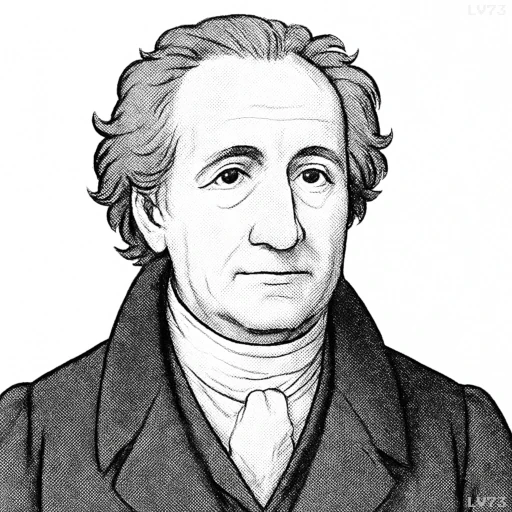“If you start to think of your physical and moral condition, you usually find that you are sick.”

- August 28, 1749 – March 22, 1832
- German
- Poet, playwright, novelist, philosopher, politician
table of contents
Quote
“If you start to think of your physical and moral condition, you usually find that you are sick.”
Explanation
Goethe suggests that by overanalyzing our own physical and moral states, we can often perceive ourselves as being unwell or inadequate. The more we focus on our health and behavior, the more we may become aware of perceived flaws or weaknesses, leading us to feel that something is wrong. This idea reflects the paradox of self-awareness: excessive reflection on our condition can amplify our insecurities or concerns, often leading to a sense of discomfort or even imagined ailments. It suggests that focusing too much on our imperfections—whether physical or moral—can make us feel worse, rather than better.
Historically, this idea speaks to Goethe’s broader understanding of human nature and self-awareness. In the Romantic period, thinkers began to explore the complexity of the self and the psychological impact of introspection. Goethe, known for his interest in both the mind and body, recognized the tension between reflection and well-being. When we turn our attention inward, we may become more aware of the imperfections that exist in both our body and spirit, which can cause unnecessary distress.
In modern contexts, this idea is relevant in discussions of mental health, self-esteem, and well-being. Today, we often hear about the dangers of overthinking or ruminating on negative aspects of our lives. In the age of social media and constant self-comparison, people can easily become overly concerned with their appearance, health, or moral status. This constant focus on perfection can sometimes lead to anxiety or depression, as we perceive ourselves as inadequate or flawed. The concept also connects to mind-body connection theories, which suggest that excessive worry about our physical condition can manifest in physical symptoms or worsen our health.
Goethe’s words remind us that sometimes, too much introspection or focus on our own perceived faults can make us feel unwell. Rather than overanalyzing our physical or moral state, it may be more beneficial to shift our focus outward, engage in action, or practice acceptance and gratitude to foster better well-being.
Would you like to share your impressions or related stories about this quote in the comments section?




